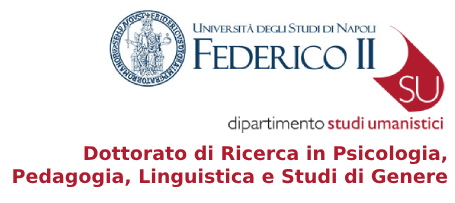The educational objectives of the Doctoral Course in Psychology, Pedagogy, Linguistics and Gender Studies are defined in terms of:
Understanding and knowledge: in-depth knowledge of contemporary theoretical and methodological aspects relating to mental processes and behaviour, educational, social and training processes, linguistic studies and different aspects of gender studies. Have a clear understanding of the methodologies and research methods that characterize the different theoretical approaches and models;
Skills: acquire highly specialized skills that allow the PhD students to independently conceive, design and carry out a research process; develop synthesis skills and the ability to correctly interpret research data and make a critical evaluation of it; develop skills necessary to solve complex problems of research and/or innovation and to allow the extension and redefinition of existing knowledge or professional practices in relation to the disciplines that concern the study of the human mind in its psychological, educational and linguistic correlates and in gender studies;
Competences: acquire the ability to carry out original research that expands the boundaries of knowledge; carry out critical analysis, evaluation and synthesis of new and complex ideas; communicate with peers, the broader scholarly community, and society at large; promote, in academic and professional contexts, technological, social or cultural advancement by demonstrating capacity for innovation, autonomy, integrity and continuous commitment in the development of new ideas or processes relating to the fields of studies on the human psyche, educational processes, languages and gender.
